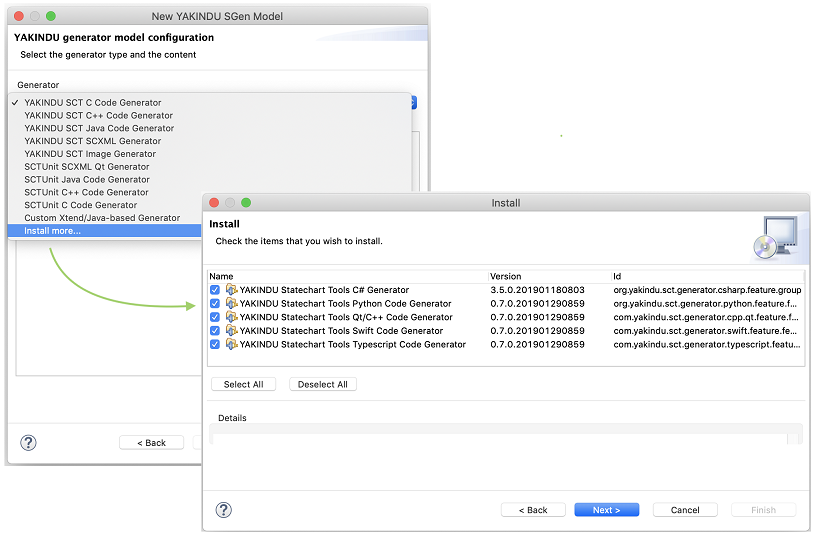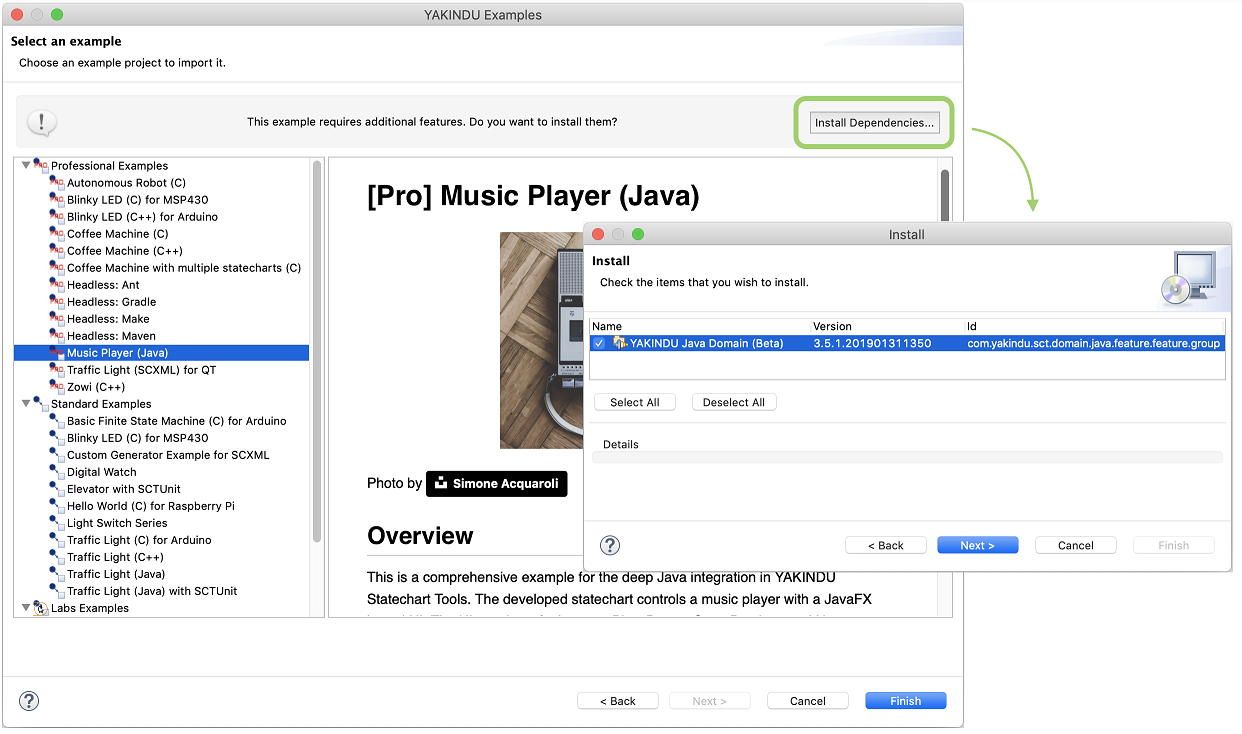Table of contents
YAKINDU Statechart Tools 3.5.2 (Feb 28, 2019) Copy link to clipboard
This release focuses on stability and performance, especially in the C/C++ domain.
C/C++ Domain Copy link to clipboard
The transformation of C/C++ code does not rely on the C/C++ indexer to be finished anymore. Especially in C++ projects, the side effects were sporadically unresolved types. When the transformation is invoked while the C/C++ indexer is running, indexer information is discarded and header files get parsed again. This also means that SCT can be used with the C/C++ indexer being disabled, which is in some cases necessary due to performance reasons.
We also improved the runtime performance of the C/C++ transformation dramatically which is particularly noticeable in C++ projects with the C/C++ indexer being disabled.
The C/C++ code generator now prints includes in the same order as they are defined in the statechart model. In that way, the user can influence the generated include order directly in the statechart model. The code generator also does not resolve symbol links on its own anymore.
The content assist for import statements shows header files from the workspace first, before showing system headers.
Generator Model Wizard Copy link to clipboard
We added an option to install more generators from within the generator model wizard. Using this option, the install wizard opens with a list of available code generators from our Labs update site.

Example Wizard Copy link to clipboard
The examples delivered with YAKINDU Statechart Tools now contain information about requirements to other features. This information is read out in the example wizard and an Install Dependencies button is shown if a required features are missing. Clicking on this button opens the install wizard with the required features being preselected.

Java Domain (Beta) Copy link to clipboard
It is now possible to use inner classes and enumerators in Java domain statecharts.
We removed some useless entries from the content assist. The content assist for import statements shows own Java classes first, before showing JRE classes.
Miscellaneous Copy link to clipboard
In addition, this release contains
- a fix for a bug that caused the image generator to not render transition and region priorities when the model was closed
- a fix for a bug that caused the Snapshot view to not open properly
- a fix for a bug when renaming elements from statechart interfaces
- better error and assert messages in SCTUnit